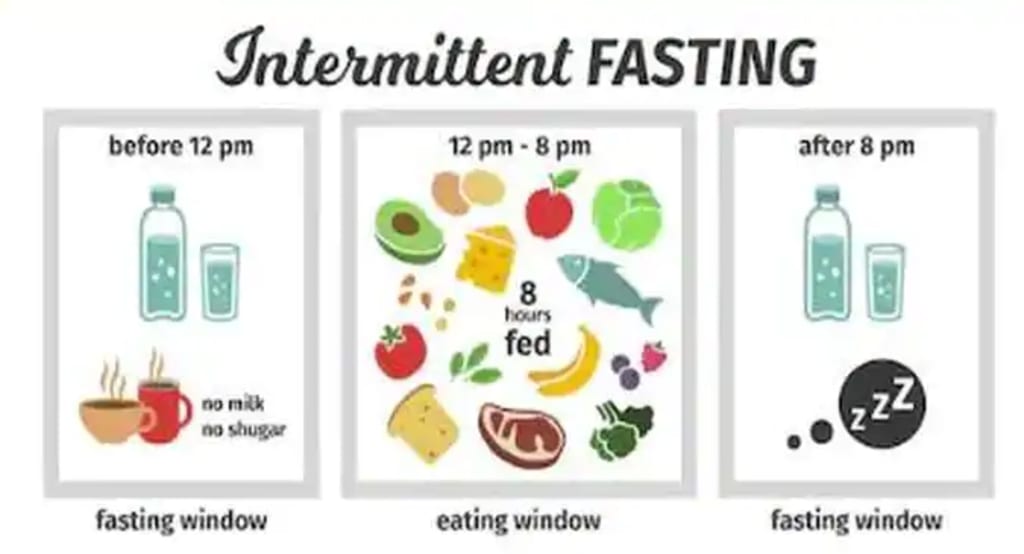
For ages, people have restricted their diet in a variety of ways for various purposes. People fast for religious reasons (some Christians during lent, Muslims during Ramadan, etc.), political reasons (hunger strikes such as Mohandas Ghandi’s hunger strikes, the 1981 Northern Irish Hunger Strikes, etc.), and for medicinal benefits. While I could write expansively on all of these, instead I would like to talk to you about the growing evidence that intermittent and alternate day fasting promote weight loss, longevity, and a variety of other benefits.
Before I get into that, a disclaimer: fasting of any kind needs to be monitored closely. It is not for everyone and if you suffer ill effects such as light headedness or any other myriad of negative effects, eat something. When fasting, especially if you plan to fast for more than 24 hours, ensure that what you have been eating is nutrient rich. Speak to a doctor before you begin to see if it’s right for you.
First we will tackle the first: weight loss. This one is fairly self explanatory. If you consume less, then you will probably burn more calories than you take in. This is basic arithmetic and generally works.
There is also evidence that it promotes anti-aging by elongating cell life. If cells last longer, then they reproduce more slowly and therefore degrade less quickly. It also promotes the production of human growth hormone, which is beneficial for growing muscle and weight loss.
There are also benefits for the brain itself, helping fight against degenerative diseases and providing the general clarity that fasting can produce.
This article from Healthline highlights several benefits, including fighting cancer and insulin maintenance.
Types of Fasts:
The most important thing to remember about fasting is that we do it every time that we sleep. Assuming you actually get the full eight (hopeful, I know), you probably don’t eat immediately before bed or immediately when you wake up, so that’s a 10-12 hour fast right there. The goal here is to elongate that a bit.
Intermittent fasting takes place during a 24 hours period consisting of a shortened period in which the person eats and a longer period where they do not. Fasting in general, starts between 8 and 12 hours after the last meal so the idea is to elongate the period of fasting between meals. There are standard plans such as 16-8 or 20-4. The idea is that the more time between when you start your fast and break it, the better the health benefits.
Alternate day fasting is exactly like it sounds: you eat every other day. This is considerably harder, but with 24 hours of fasting, you are maximizing the benefits of the fast.
There are longer fasts as well, and people have successfully fasted for multiple days, but to me that’s overboard and putting your body at unnecessary risk.
Fasting and Me:
While many of these studies have a small sample size or are solely based on experiments conducted on animals, I can tell you that I like it in my lifestyle. Intermittent fasting is my preferred method.
I tried alternate day fasting a few years ago, but I didn’t have the desire to push my will that far. It was easier on work days, where I could focus on the tasks at hand, but I remember spending a couple of my off days, wandering by my kitchen and forcing myself to not raid the refrigerator. It made those off days less enjoyable.
So, intermittent fasting… I loosely say that I eat between noon and 8pm everyday (a 16-8), but I try to push my end of fasting later so that I can maximize the fast. I really enjoy food, really. It’s one of my de-stressers and, on top of that, I love to cook. Forcing myself to only eat during a certain time of the day still allows me to enjoy that daily splurge, but in a controlled fashion. I can also work out during my fasts because I still eat on a regular schedule. I’ve also grown accustomed to it. Do I still seem to get hungry around 10 in the morning everyday? Indubitably, but I’m fairly used to it and can generally control my hanger. The hunger generally leaves and may come back again if I don’t eat right at noon, but by the time noon comes around I play tricks on myself. I try to come up with excuses to push it off a little longer, like having to do the dishes first or I start an activity that precludes eating around then. It’s particularly easy at work because I can’t go on lunch wherever I want. I have to work with others to ensure coverage. COVID has also helped me a bit in this respect as well. I used to snack at work, but now I’m always wearing a mask and doing my best not to touch my face. I’m not going to simply pop food all willy nilly into my facehole without washing my hands first and that’s just too much work for not enough benefit. Like I’ve said before, I’ll take my COVID silver linings where I can get them. But back to the matter at hand…
Intermittent fasting works for me, but again, it’s not for everyone. Start small and make sure that you take care of yourself. Hydrate constantly and eat nutritious foods when not fasting. This isn’t just about eating less. It’s about eating right.
Have you tried fasting? Let me know in the comments.
Remember to check out the chainmaille shop and check out my other writings as well. Meet Audrey as she discovers why she keeps showing up in Asaldium.






Comments
There are no comments for this story
Be the first to respond and start the conversation.